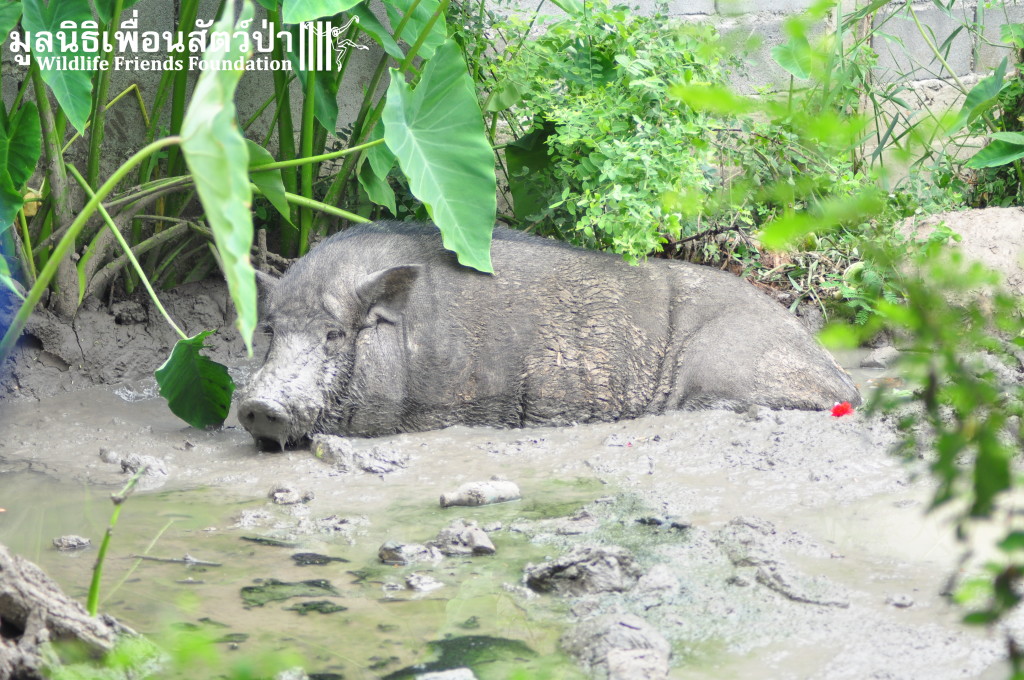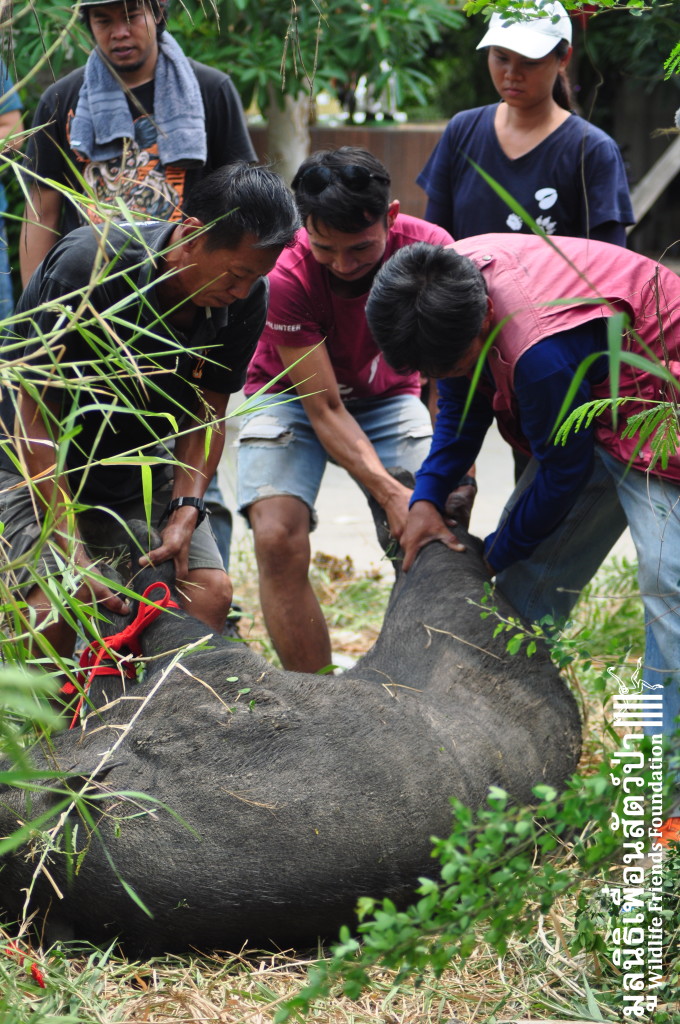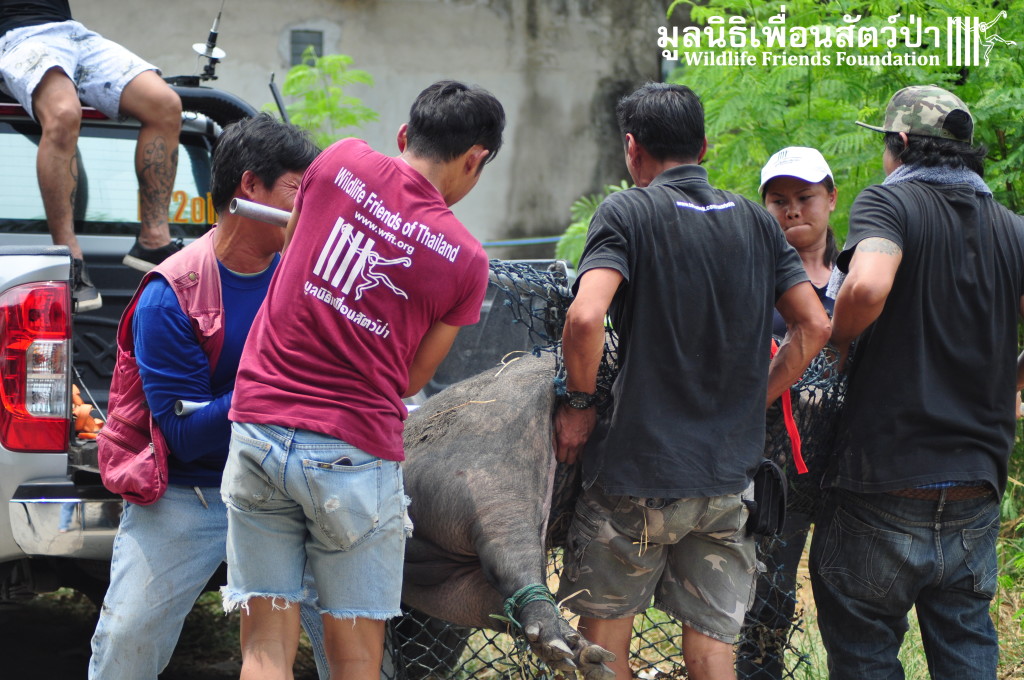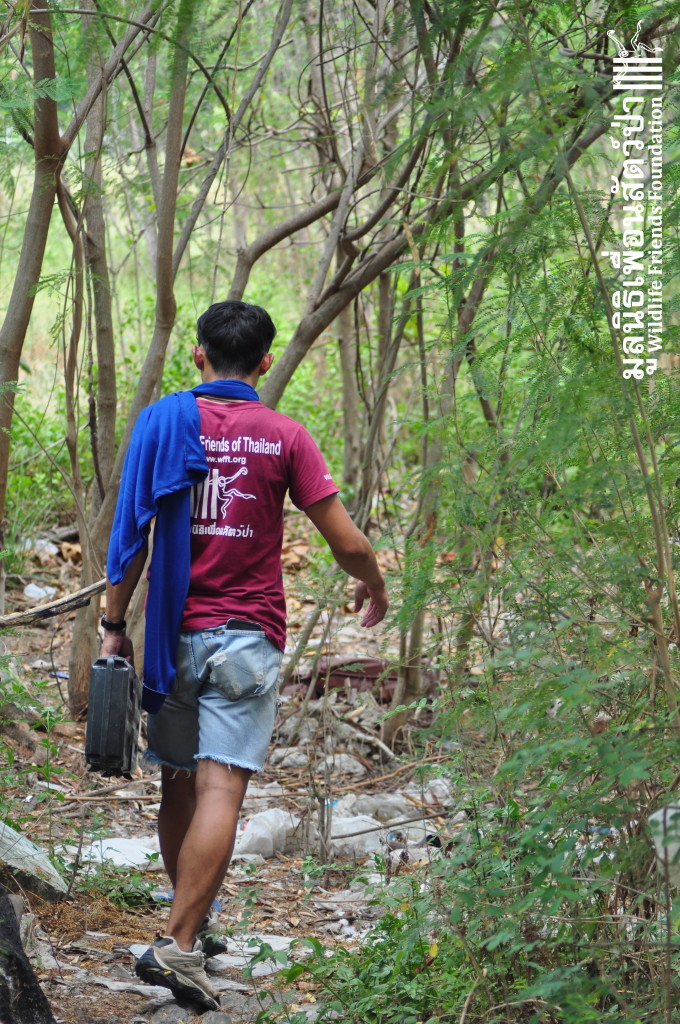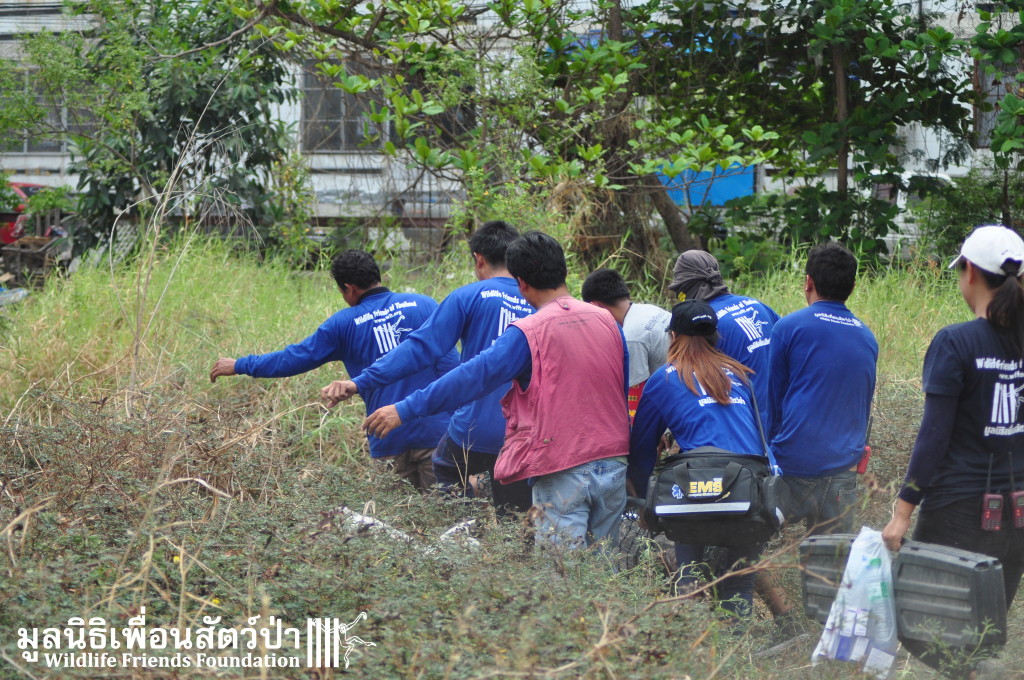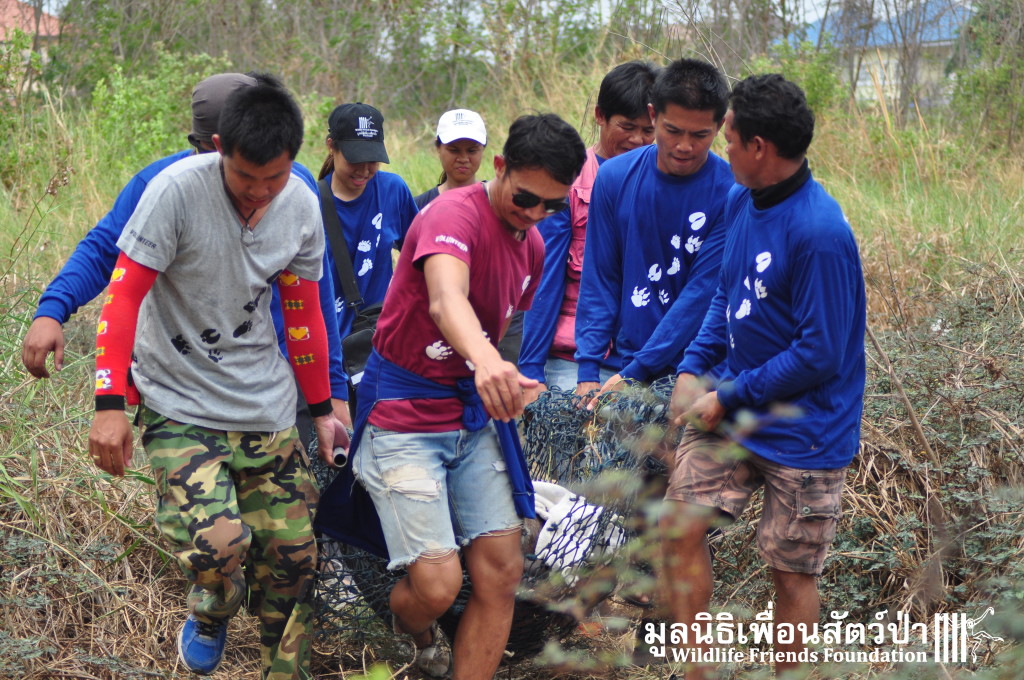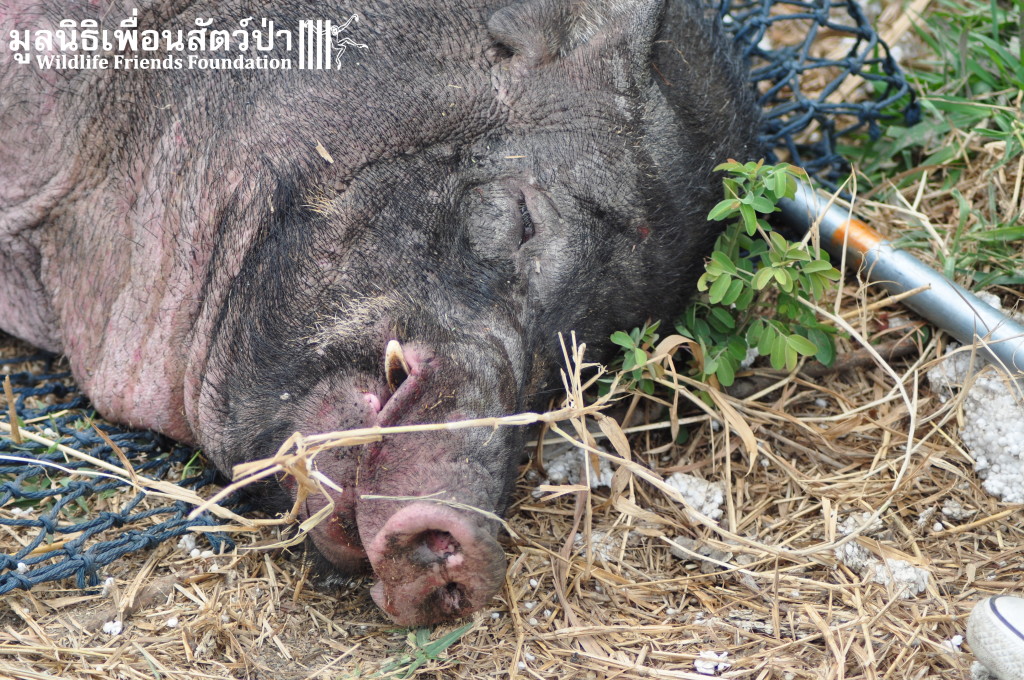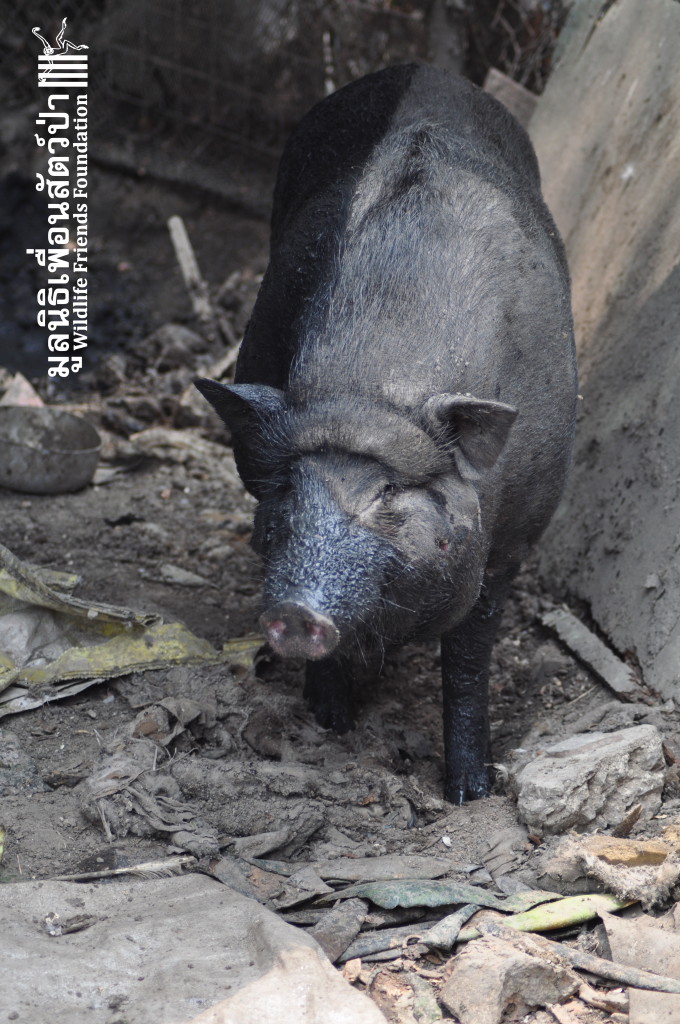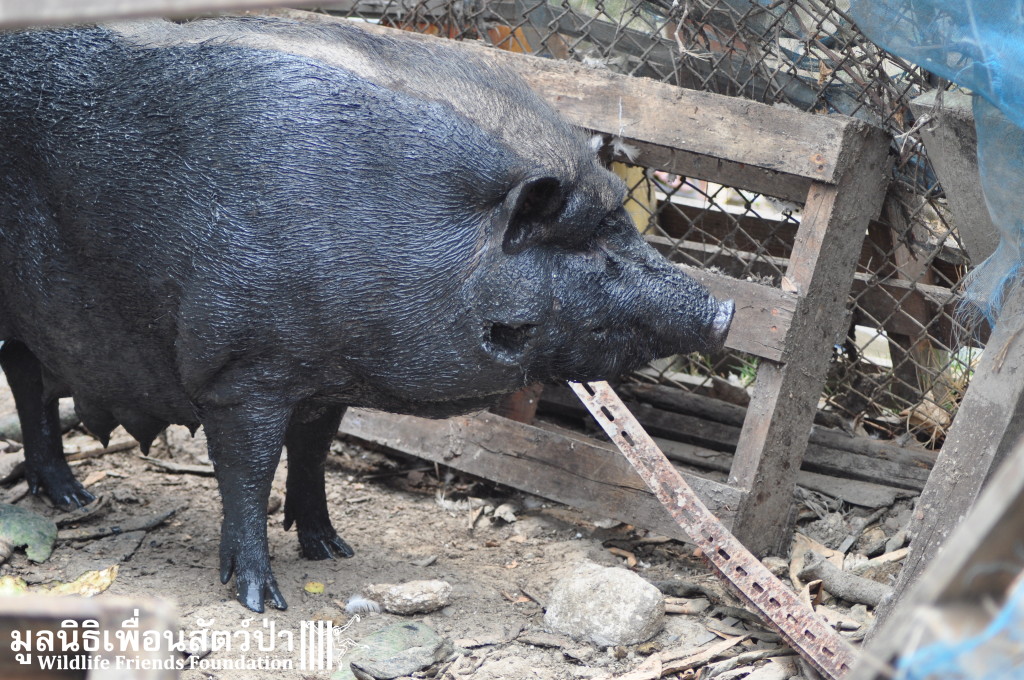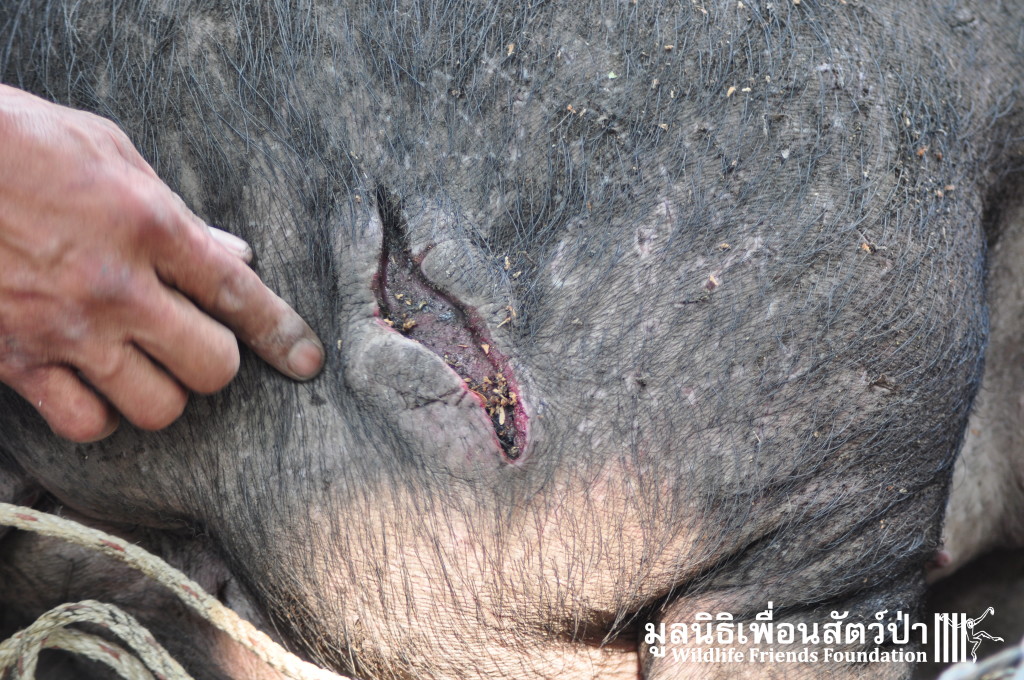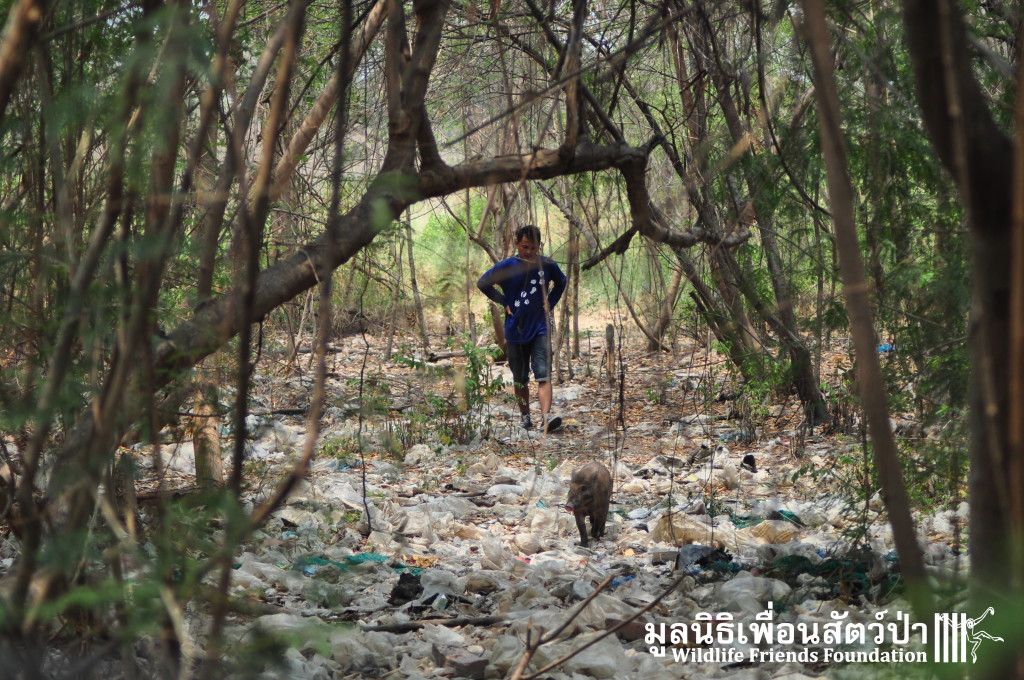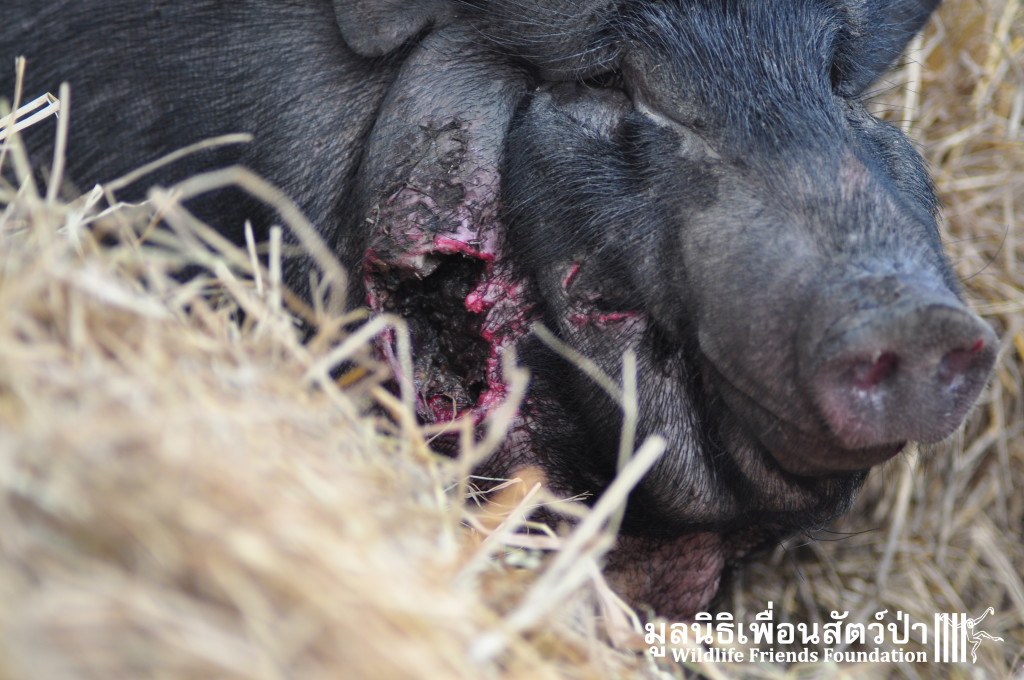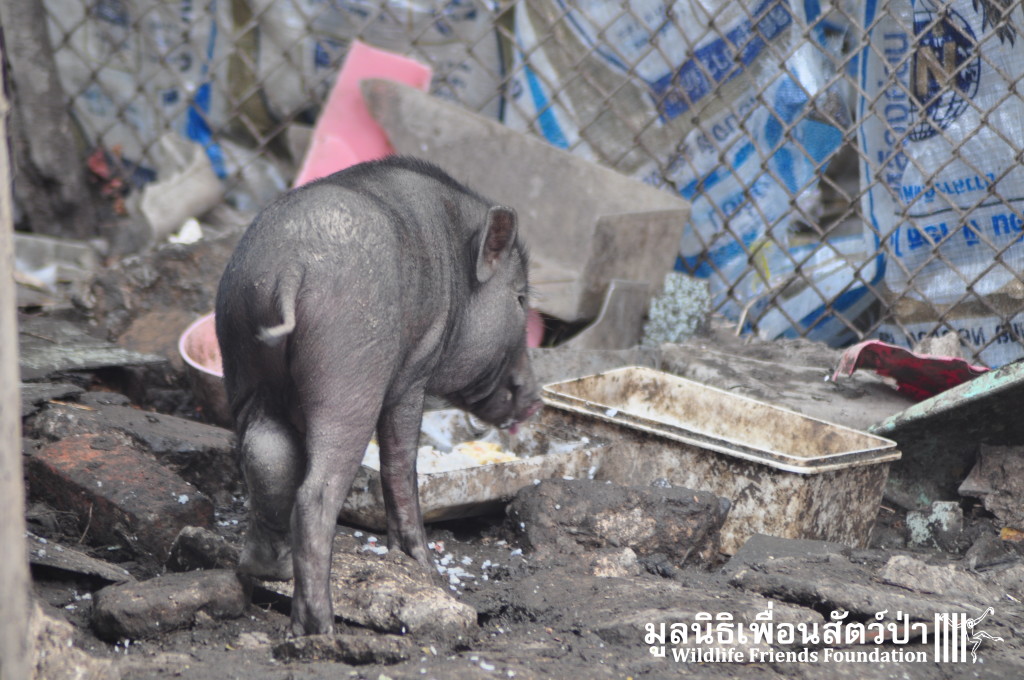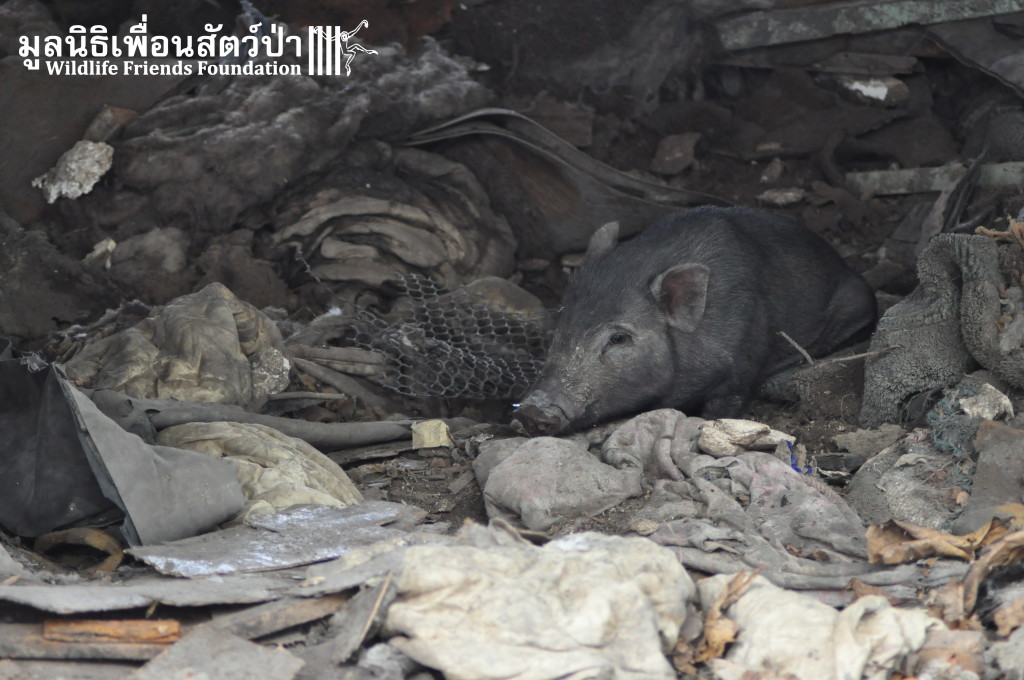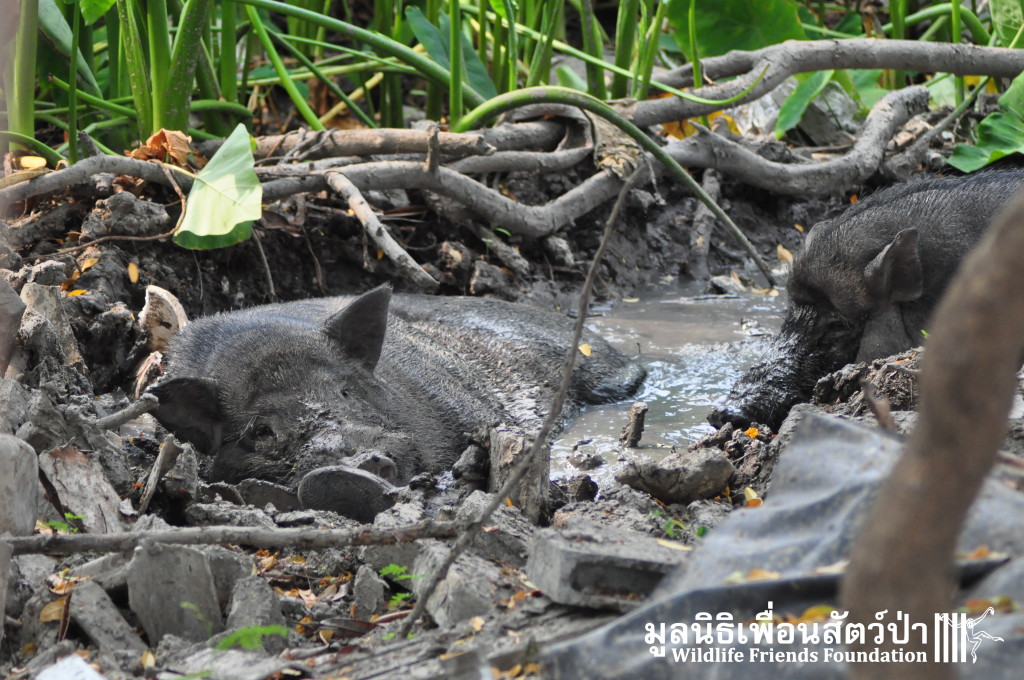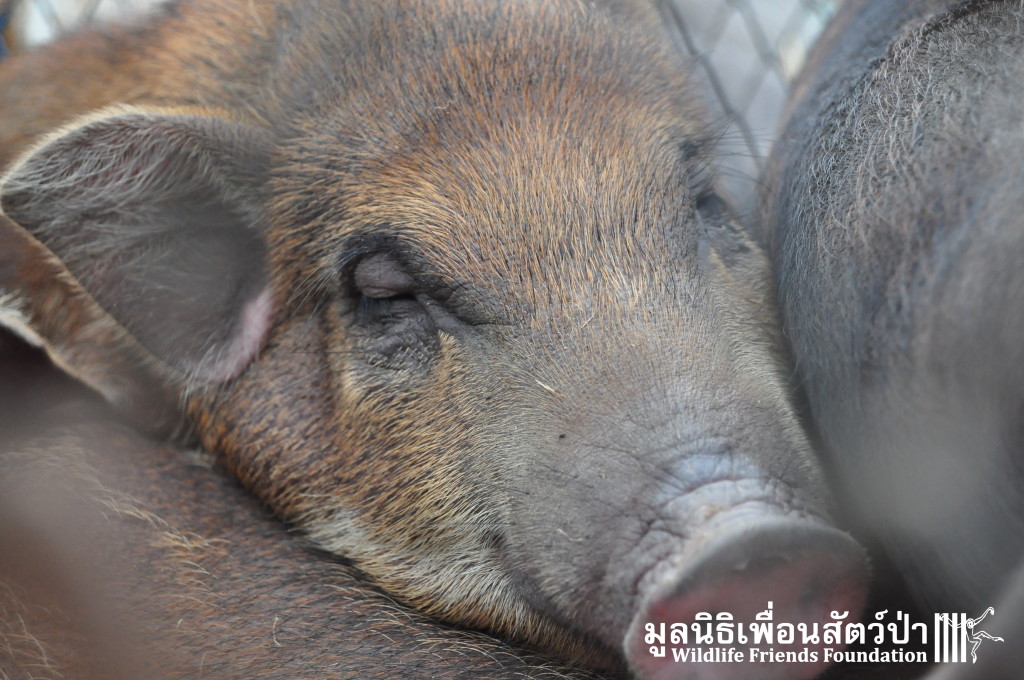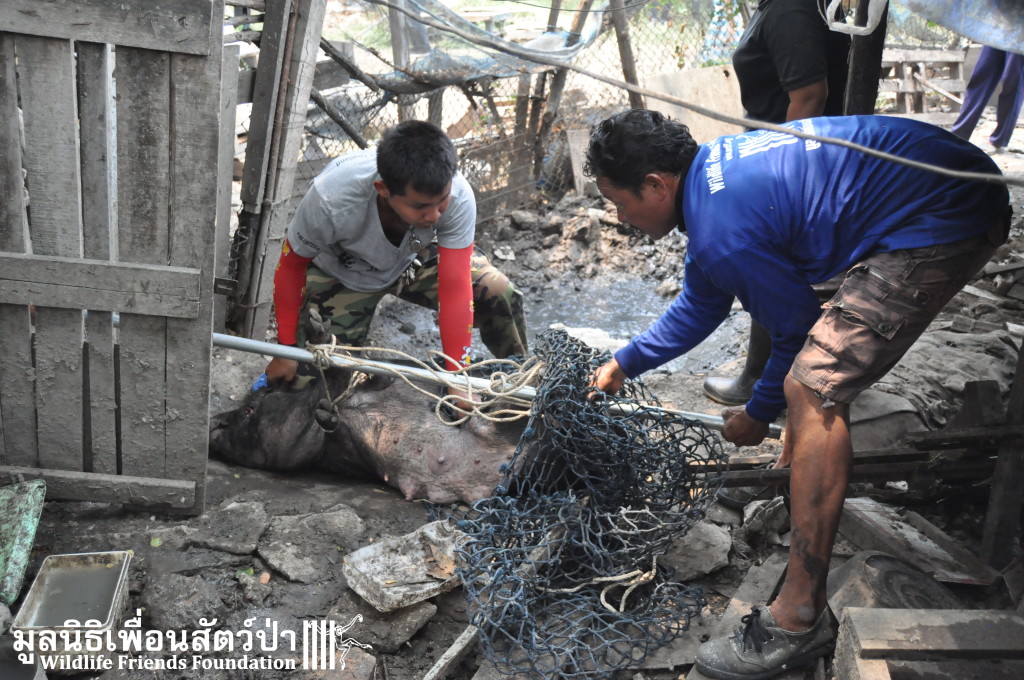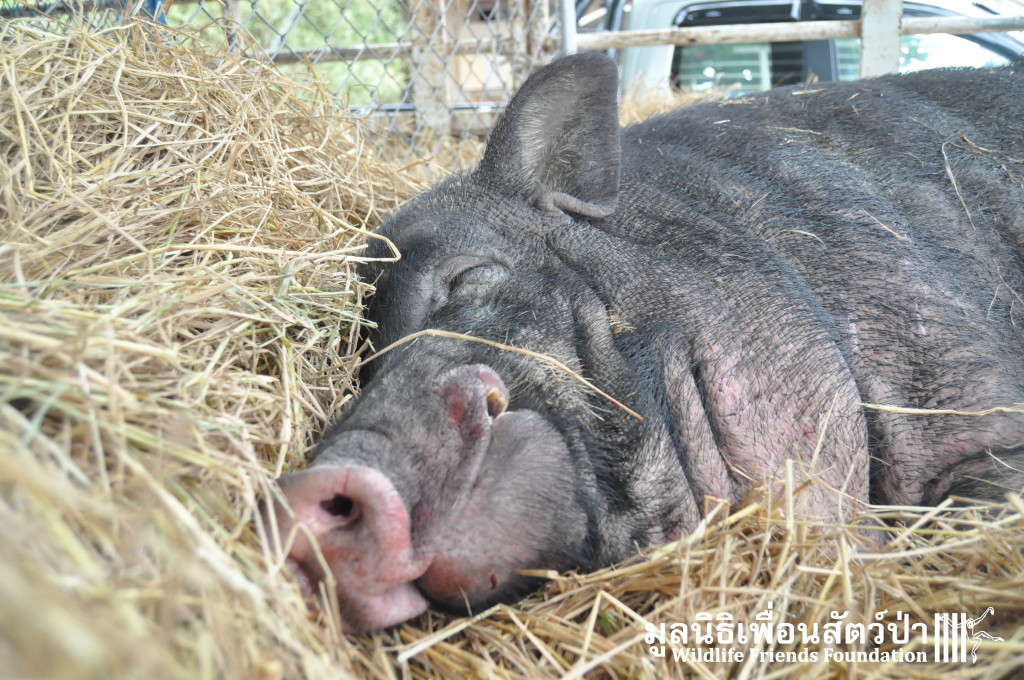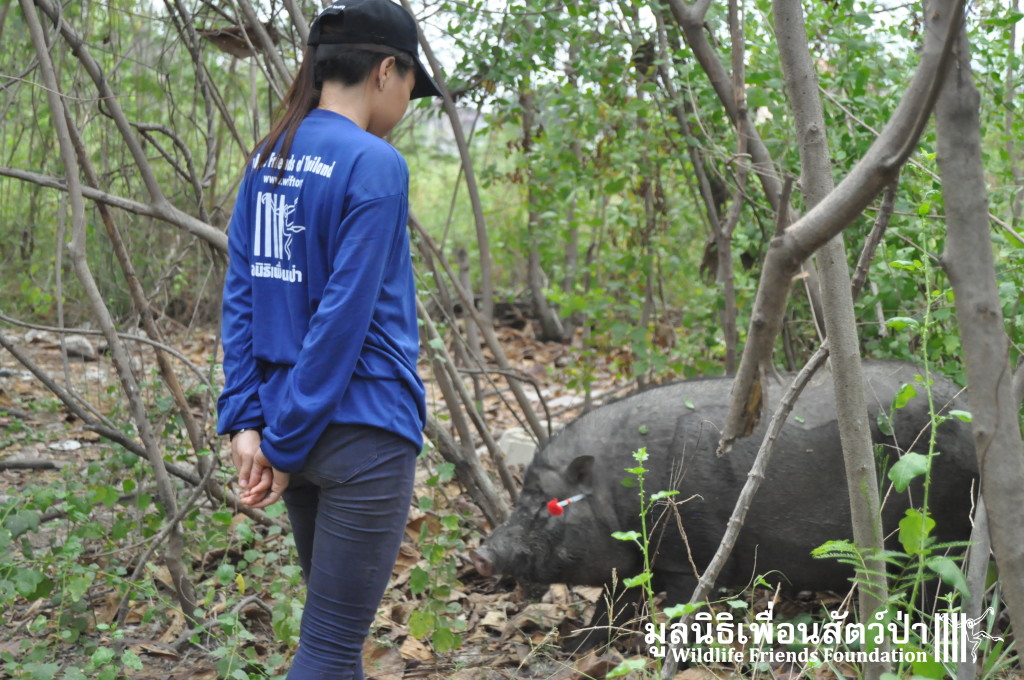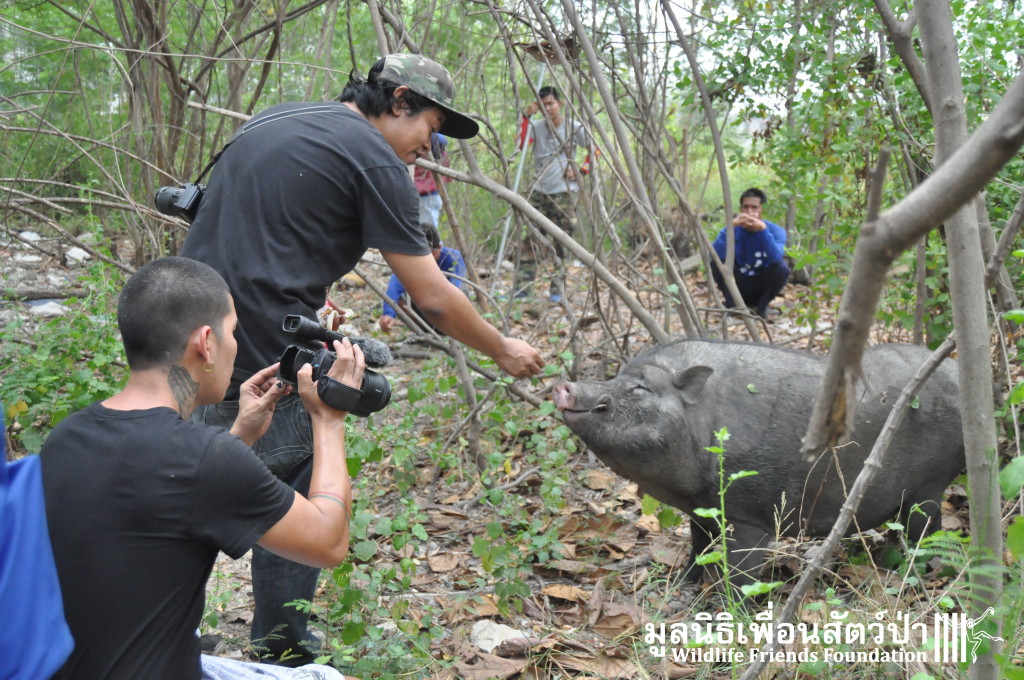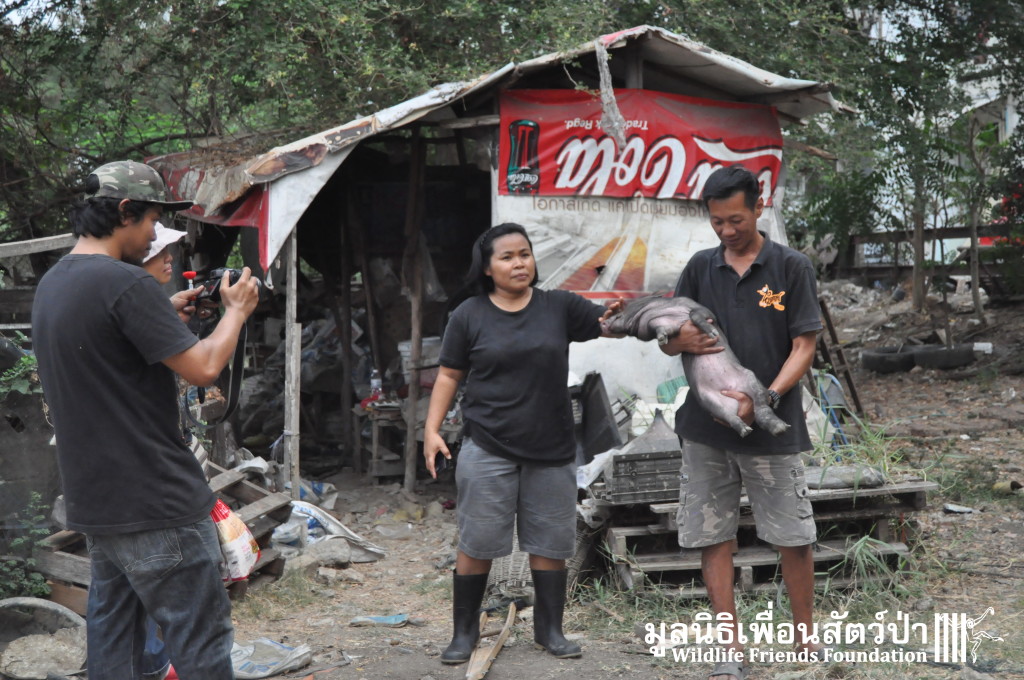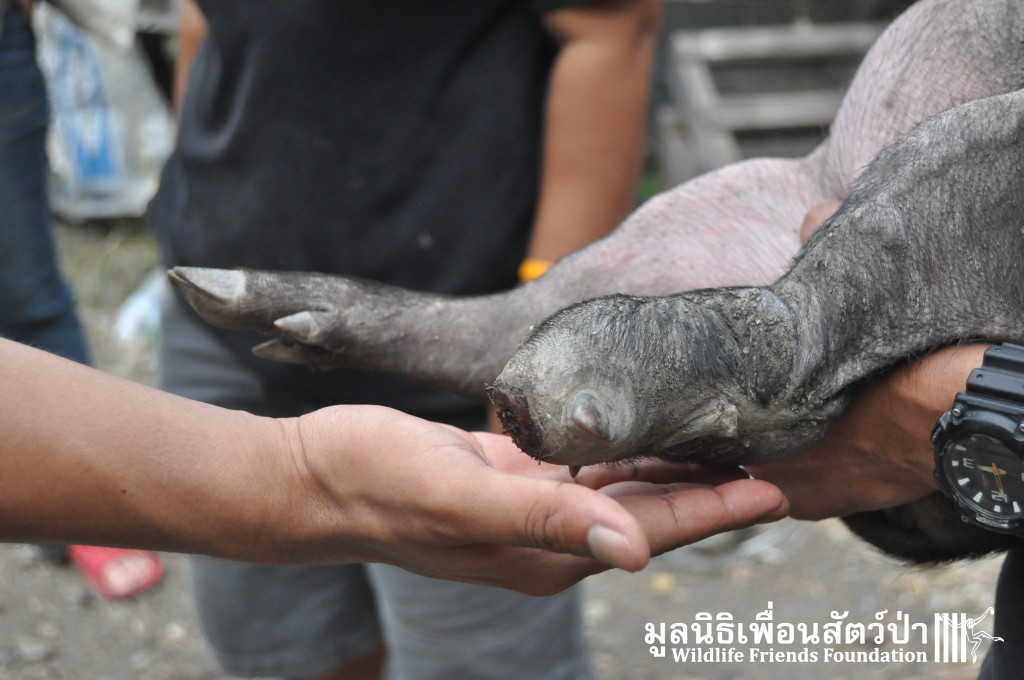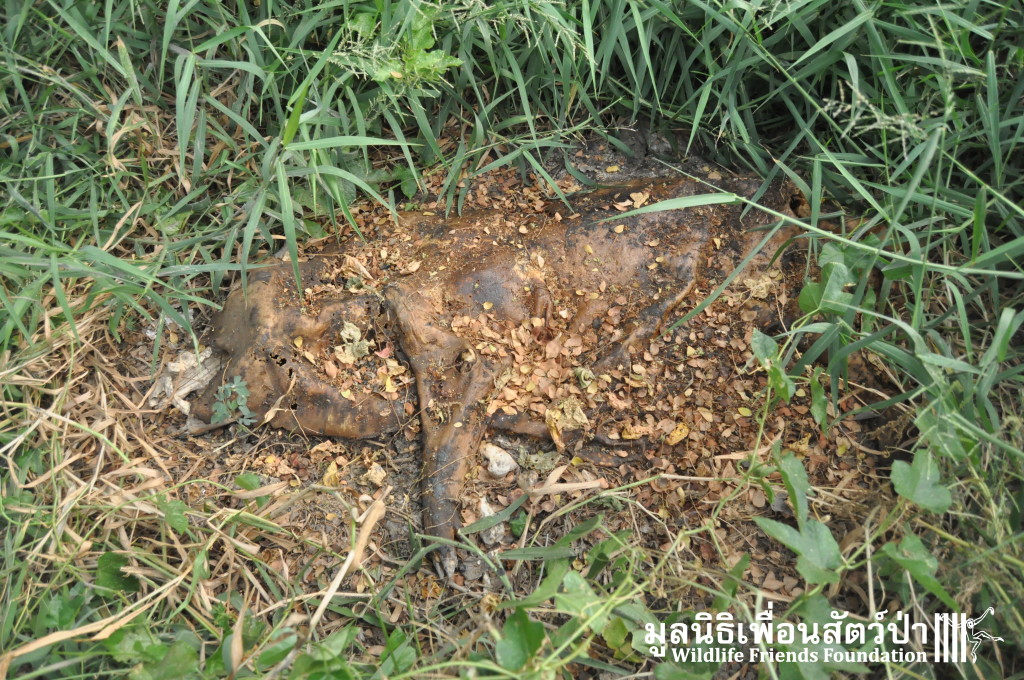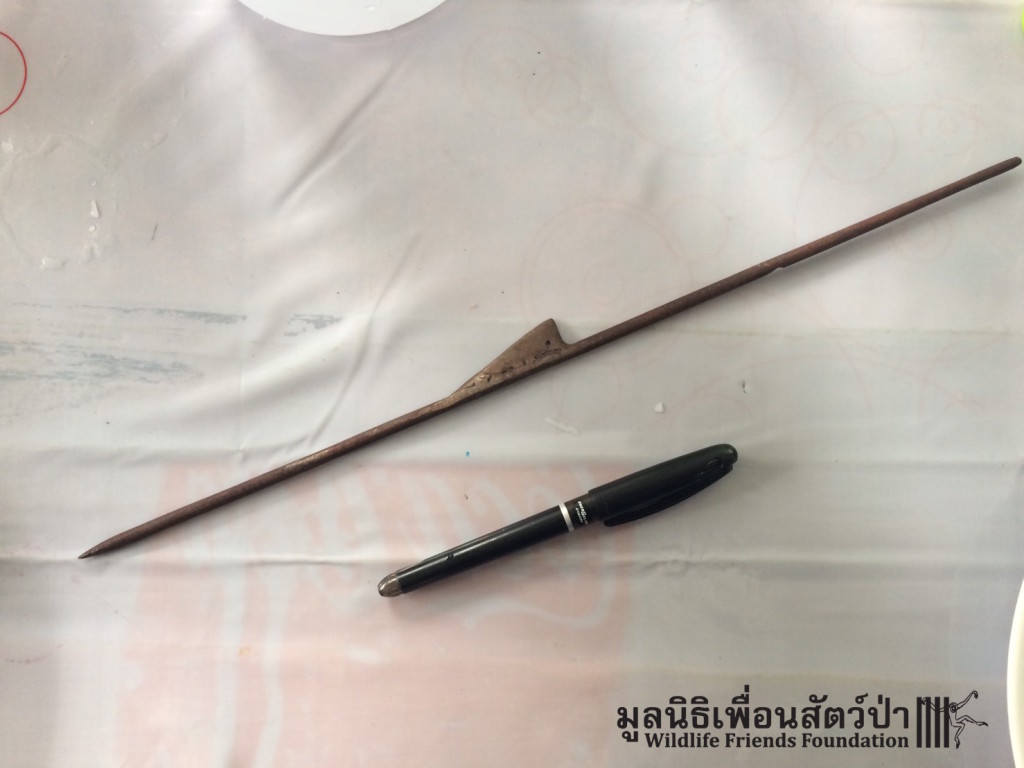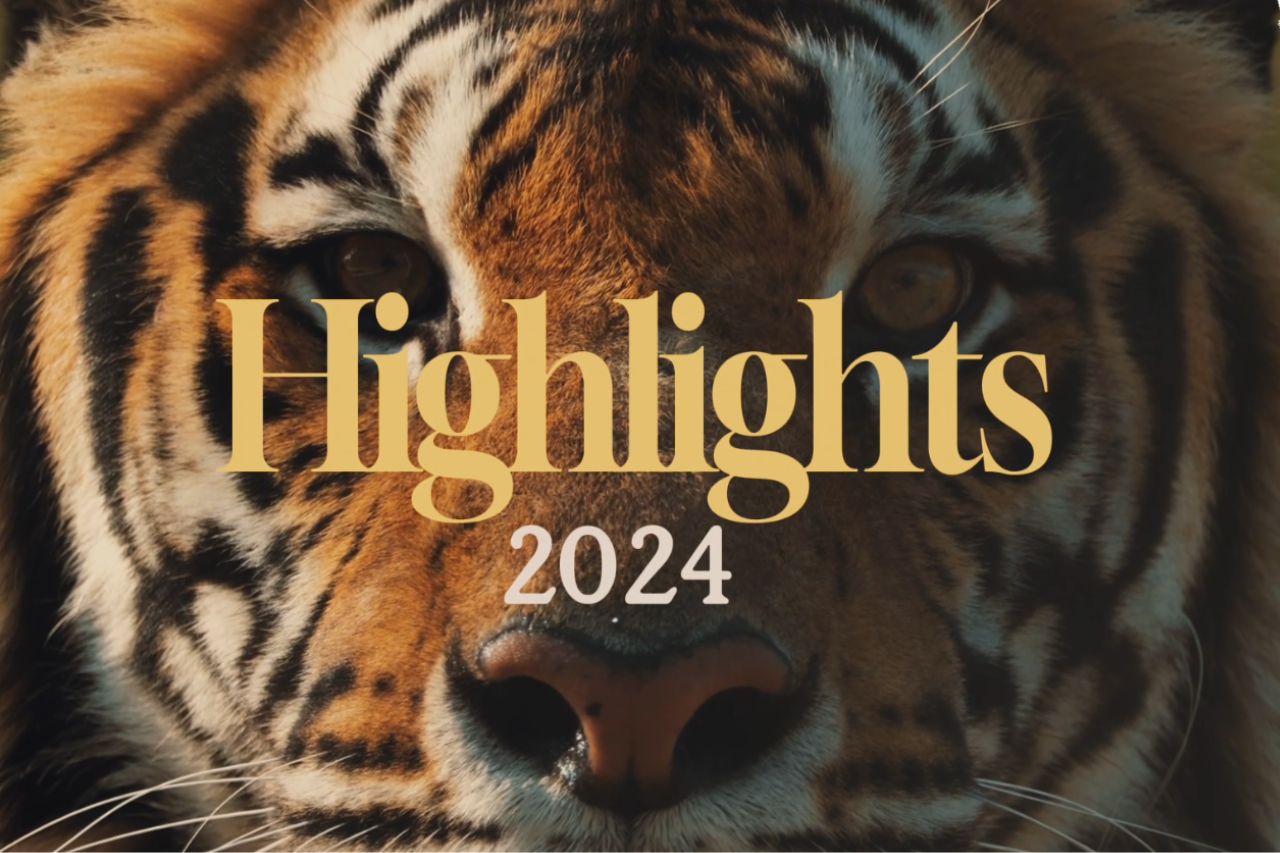Authorities have uncovered a major international trafficking ring, rescuing three orangutans, a siamang, a white-handed gibbon, red pandas, and tamarins. This shocking discovery highlights the ongoing threat to endangered species from illegal trade.
Wild Pigs Saved from Certain Death in Central Bangkok
Yesterday the WFFT Rescue Team headed north to Bangkok on a mission to rescue a group of 9 Eurasian wild pigs (Sus scrofa) that were marooned on a piece of waste land surrounded by heavily populated urban settlements. We were alerted to the plight of these poor animals by TV personality Kittipong Khamsat from หมากาพย์ หมาจร and a long-term supporter of WFFT, Tossaporn Klunkaew. They had all originated from two individuals that had been released into an enclosed grassland area some years ago. As the years went by these pigs were under more and more pressure from urban expansion and poaching by hunters for food. This family off pigs had been at the site for many years without appropriate food or access to clean drinking water. Over the years they have managed to survive by being fed household food waste from kindhearted locals. Upon arrival to the site the WFFT Rescue Team were shocked at some of the clearly visible human caused injuries sustained by many of the pigs, barbaric barbed arrows had been used in an attempt to capture these pigs and eat them. A team of over 15 people spent the whole day rounding up the pigs to bring them back to the WFFT Wildlife Rescue Centre for urgent veterinary treatment and to provide them with a suitable home.
The IUCN Red List of Threatened Species lists the Eurasian wild pig as Least Concern (LC). This species is abundant in many parts of its range, though populations can be depressed in places where hunting intensity is high such as Thailand and other Southeast Asian countries. There are many threats at a local level, principally habitat destruction and hunting pressure, either for food, sport or in reprisal for crop damage, particularly in areas near human habitation.
Once the pigs have made a full recovery they will be considered as candidates to return back to the wild. For now the sexes have been separated to prevent any further breeding. Luckily we have some large open wooden enclosures where they can be rehabilitated.

